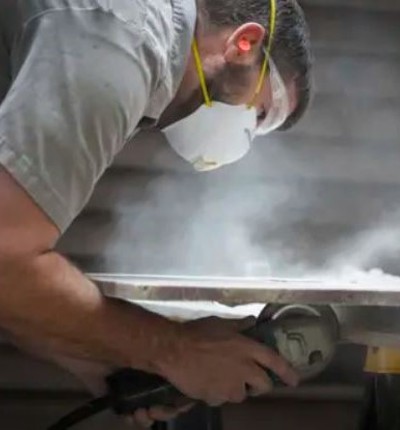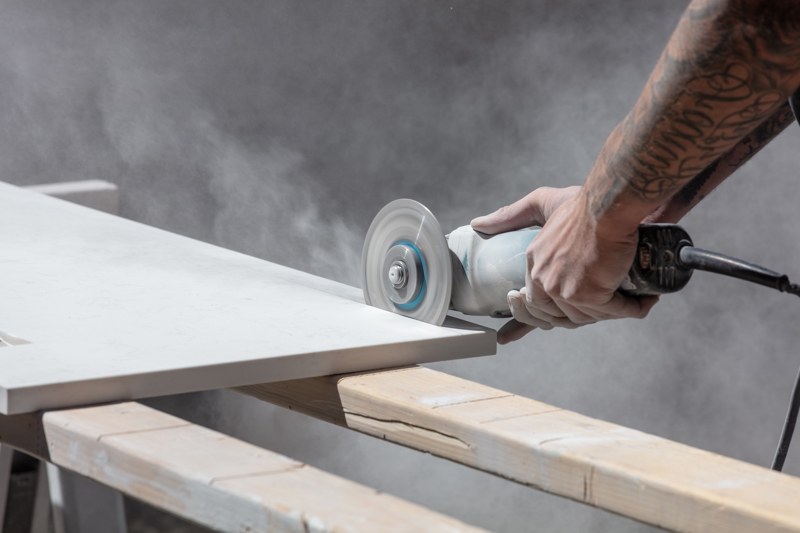
Lawyers representing engineered stone workers with silicosis say tougher safety measures are urgently needed
Lawyers at Leigh Day, who represent a growing number of workers diagnosed with silicosis after manufacturing engineered stone kitchen worktops, say tougher safety measures are urgently needed to stop the rise in the deadly disease.
Posted on 17 July 2024
As engineered stone, or quartz, has grown in popularity as a kitchen worktop material in recent years, the industrial injuries team at Leigh Day has been contacted by a number of stone workers who have developed silicosis after working with it.

Silicosis is an irreversible lung condition caused by exposure to silica dust which can be fatal. Workers who have been exposed to silica dust through cutting kitchen worktops have developed a particularly acute form of the disease, causing significant shortness of breath and severe disability, with lung transplantation often being the only potential treatment.
Quartz can contain more than 90% silica and when cut and polished releases high levels of fine silica dust which can be inhaled by workers if sufficient safety measures are not put in place. Some workers describe appalling working conditions, where they use handheld electric grinders to cut and polish the artificial stone in a dust filled room with no windows, no effective extraction equipment or respirators. The worktops are aften manufactured by small companies, making it harder for the Health and Safety Executive (HSE) to enforce health and safety standards.
Leigh Day is bringing some of the first claims in the UK for stone workers who have developed silicosis due to cutting engineered stone. The industrial disease team say the following measures are urgently needed:
- Better awareness of the dangers of engineered stone
- Better protection for people working with engineered stone
- Better regulation of the use of engineered stone
- Better funding for HSE to deal with employers with poor practices, with mandatory attendance of the HSE at businesses manufacturing engineered stone
Earlier this year, the Australian government banned the use of engineered stone after the number of cases of silicosis linked to the material reached the hundreds.
Ewan Tant, a partner at law firm Leigh Day, said:
“Leigh Day is seeing a growing number of stone workers who have developed silicosis after being exposed to silica dust whilst cutting engineered stone to make quartz kitchen worktops.
“It is essential there is better awareness of the dangers of engineered stone, better protection for those working with it, tougher safety regulations and better funding for HSE to deal with employers who continue with poor practices.
“Our fear is that we may be about to experience a significant increase in silicosis cases amongst engineered stone workers that will only get worse unless these measures are urgently introduced.”





